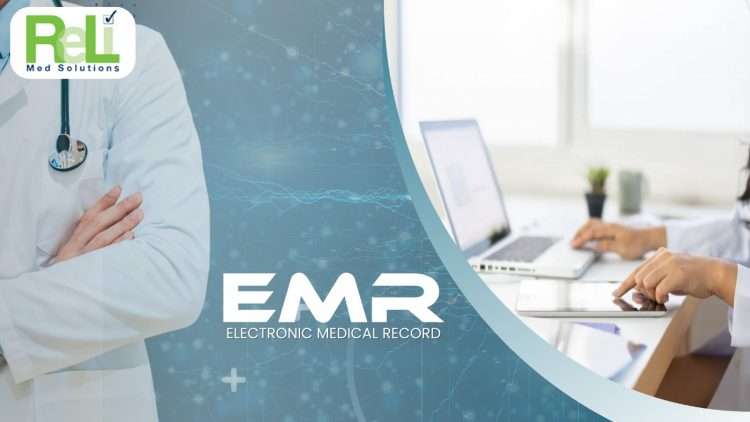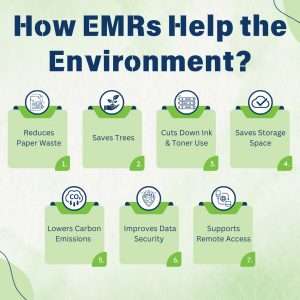What is FHIR? A Simple Guide to How It Works and Why It’s Important
Doctors and hospitals use medical records every day to treat patients. But many hospitals and clinics use different systems that do not work together. Because of that, doctors often struggle to get the full medical history of a patient. So, patients may face delays in treatment, or they may have to repeat tests. FHIR helps fix this problem by making it easy to share medical records between different health care systems. If hospitals, clinics, and health care providers use FHIR, they can quickly and safely exchange patient information. This blog explains what FHIR is, how it works, why it is important, and how ReLi Med Solutions helps health care providers use it.
What is FHIR & How Does it Work?
FHIR is a system that helps hospitals and clinics share medical records easily. HL7 developed FHIR to make health care data sharing simple and fast. Before, hospitals and clinics used complex formats that made data exchange slow. But now, with FHIR, doctors can send and receive patient data instantly.
FHIR keeps medical records in small parts called “resources.” These include patient details, medicines, test reports, appointments, and bills. If a patient goes to a new doctor, their records can be shared quickly. FHIR uses web tools like RESTful APIs, JSON, and XML, which help different hospital software and mobile apps work together. This makes it easy and safe for hospitals to share patient information.
Why FHIR Matters: Key Benefits for Health care Providers
FHIR makes health care data sharing fast and simple. If hospitals and clinics use FHIR, they can improve patient care and work more efficiently. Here are some benefits:

- Better Interoperability: Different electronic medical record systems can connect easily, so doctors can get full patient information.
- Faster Access to Data: Doctors and nurses can get medical records instantly, which helps them treat patients faster.
- Lower Costs: FHIR works with common web technologies, so health care providers do not need expensive software.
- Better Patient Care: If doctors have a complete patient history, they can provide better treatment and avoid unnecessary tests.
- Stronger Security & Compliance: Because FHIR follows strict security rules, it keeps patient data safe and meets health care laws like HIPAA.
- Works with Mobile & Telehealth Services: Many hospitals now offer telemedicine, and FHIR helps connect EMR software features with mobile apps.
- Flexible & Scalable: Whether it is a small clinic or a large hospital, FHIR can fit all health care needs.
FHIR vs. Traditional Health care Data Standards
Before FHIR, hospitals used old ways like HL7 v2, HL7 v3, and CDA to store patient records. These old methods made sharing patient details slow and hard. Hospitals found it difficult to transfer records between systems.
The old methods kept all patient details in big files. If a doctor needed one small detail, they had to search through long documents. FHIR solves this problem by breaking data into small pieces called resources. This helps doctors quickly find what they need, like medicines, bills, or test reports, without looking through extra information.
Old systems did not work well with new web technology. They could not connect with mobile apps, cloud health care systems, or digital medical records. But now, FHIR helps hospitals and health centers use a system that is fast, easy, and ready for the future.
How ReLi Med Solutions Support FHIR Implementation?
ReLi Med Solutions helps hospitals and clinics use FHIR easily. Because of this, we offer tools that make health care data exchange smooth and secure. So, if your hospital or clinic wants to use FHIR, here’s how we help:
- FHIR-Ready EMR Systems: Our electronic medical record solutions work perfectly with FHIR, so hospitals and clinics can share data easily.
- Custom API Development: If a health care provider needs to connect their system with FHIR, we create custom APIs that make it work smoothly.
- Security & Compliance: We make sure all FHIR systems follow HIPAA and other security rules, keeping patient data safe.
- Cloud-Based Solutions: Many hospitals now use cloud-based platforms. Because of this, we provide FHIR-ready EMR software features for better data access.
- Mobile & Telehealth Integration: More health care providers now use telemedicine, so we help them connect FHIR with mobile health applications.
- Training & Support: If your IT team needs help with FHIR, we provide training and support to make sure everything runs smoothly.
With FHIR-powered solutions, hospitals and clinics can manage medical records, medical billing, and patient care more efficiently. So, if your health care organization is ready for FHIR, ReLi Med Solutions is here to help.
Conclusion
Health care is changing fast, and FHIR makes it easier for hospitals, clinics, and health care providers to share medical records safely. Before, data sharing was slow and complicated. But with FHIR, patient data can now be accessed instantly. Because it uses modern web technology, it helps different electronic medical record systems work together. Hospitals and health care centers need expert help to use FHIR the right way. That’s why they should work with a trusted partner like ReLi Med Solutions. We provide FHIR-friendly EMR software, safe cloud storage, and expert support to make everything easy. If your health care center wants better billing, improved patient care, and simple data sharing, now is the best time to start using FHIR. ReLi Med Solutions can help build a smarter health care system that works well for both doctors and patients.



